MercoPress. South Atlantic News Agency
Antarctica
-
Wednesday, May 28th 2014 - 22:12 UTC
Seven years and 650 million dollars later, Argentine icebreaker Irizar still under repairs
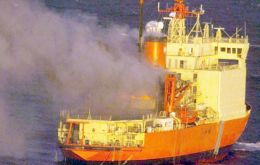
The Argentine government is putting pressure on contractors so that the Navy's flagship icebreaker Almirante Irizar, partially destroyed by fire in 2007, can begin sea trials later this year. However over-costs and mismanagement of the funds invested, estimated at over 650 million dollars, could have purchased a new vessel of three second hand according to critics in Congress.
-
Wednesday, May 28th 2014 - 22:04 UTC
Antarctica ice sheet melting episodes have occurred over the last 14.000 years, say scientists
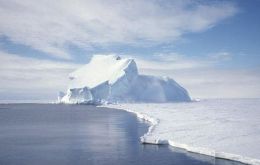
A new study has found that the Antarctic Ice Sheet began melting about 5,000 years earlier than previously thought coming out of the last ice age, and that shrinkage of the vast ice sheet accelerated during eight distinct episodes, causing rapid sea level rise.
-
Wednesday, May 28th 2014 - 00:27 UTC
Antarctica visitors up 9% in 2013/14 season, totaling 37.405, according to IATTO
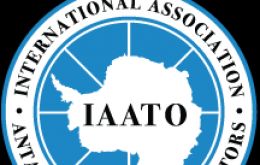
The International Association of Antarctica Tour Operators (IAATO) announced its tourism figures for the 2013-2014 season, on the first day of its 25th Annual Meeting in Providence, Rhode Island. The total number was 37.405, up 9% with a growing prevalence of Chinese visitors.
-
Saturday, May 24th 2014 - 09:25 UTC
South Georgia releases three new coins: one of them to honor Prince George

Three new South Georgia and South Sandwich Islands government coin designs have been released in recent months. The birth of His Royal Highness the Prince of Cambridge is marked by the release of a coin dated 2013, which is based on a coin originally released the previous year.
-
Thursday, May 22nd 2014 - 12:41 UTC
History of whaling in South Georgia and its impact revealed with DNA samples
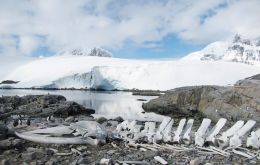
Bones that have littered the beaches of South Georgia for a hundred years since the animals were killed by whalers are now being used to establish what species of whale were being hunted, reports South Georgia’s April Newsletter.
-
Tuesday, May 20th 2014 - 08:19 UTC
Antarctica ice sheet loss has doubled since 2010, shows CryoSat satellite
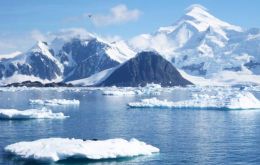
The Antarctic ice sheet has lost ice twice as quickly in the past three years as when it was last surveyed between 2005 and 2010, say scientists. Results from the CryoSat-2 satellite mission, published Monday in the journal Geophysical Research Letters, say the largest ice sheet on Earth is now losing 159 billion tons of ice each year.
-
Wednesday, May 14th 2014 - 00:15 UTC
West Antarctica glaciers' melting 'have passed the point of no return', says NASA study

A new study by researchers at NASA and the University of California, Irvine, finds a rapidly melting section of the West Antarctic Ice Sheet appears to be in an irreversible state of decline, with nothing to stop the glaciers in this area from melting into the sea.
-
Friday, May 9th 2014 - 06:13 UTC
Strong commitment to support Marine Protected Areas in Southern Ocean
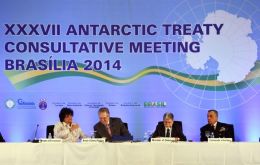
The Antarctic and Southern Ocean Coalition (ASOC) joined member states of the Antarctic Treaty, along with observer and expert organizations, in Brasilia this week to discuss measures for the protection of the Antarctic environment.
-
Wednesday, May 7th 2014 - 06:21 UTC
Live avian influenza virus discovered in Antarctica Adélie penguins
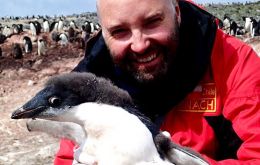
Researchers have found a new type of avian influenza virus in a group of Adélie penguins (pygoscelies adeliae) from Antarctica. Aeron Hurt, PhD, a senior research scientist at the WHO Collaborating Centre for Reference and Research on Influenza in Melbourne, Australia, said that this is the first time that a distinct, live flu virus has been found in these birds.
-
Friday, May 2nd 2014 - 08:51 UTC
South Georgia re-adjusts license conditions to reduce sea birds by-catches
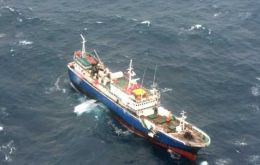
One of the most significant seabird by-catches in over a decade occurred in the South Georgia and South Sandwich Islands (SGSSI) Marine Zone last week, by the Chilean longliner Antarctic Bay.
